Allan Clarke - Interview
by Adam Coxon
published: 24 / 12 / 2019
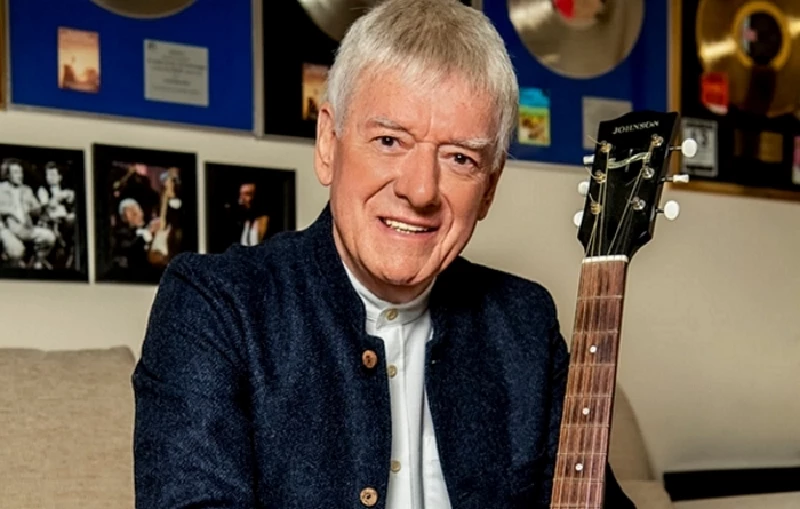
intro
Former lead singer of 1960s legends The Hollies Allan Clarke chats to Adam Coxon about his acclaimed new album 'Resurgence', his first activity since retiring from the music industry in 1999
Allan Clarke has one of the greatest and most distinctive voices of all time. As lead singer of legendary band The Hollies for over thirty-five years, the sound created by Allan and the band defined a generation and inspired many legion of musicians to come. Pennyblackmusic went to meet Allan to discuss the reasons behind his comeback after almost twenty years away from the music business. Allan is back with ‘Resurgence’, a new album of self-penned material which critics are saying is one of the most surprising and eagerly anticipated comebacks in recent times. Pennyblack: Firstly, Allan everyone knows what a great singer you are and have been over the years. I think the thing that was so great for me about your new album is that it’s reminded everyone what an incredible songwriter you are. AC : Well, thank you for that! The album is quite easy to listen to isn't it? PB : Very much so! AC : I didn't write it on purpose like that. Whatever idea I got, I went into my office, where I started it all, just to see what would happen. PB : So how do you feel about having a new album out? AC : It feels strange, I’m quite in shock really. It’s one of those things where all of a sudden there are a lot of things that you've got to do that you never thought you were gonna do again. I think I’m just about starting to enjoy it. I met with Graham (Nash) in Birmingham in 2018, he was playing there. As you know, Graham and I are in the Buddy Holly Education Foundation and we've got the guitars. PB : They only give them to a select number of people, right? AC : I think there are about fifty guitars that they’ve given to people at the moment. Graham and I got the first ones, I got mine for life. That means the family have to give it back when I pass away. I’m not going to miss it then though, am I? That guitar was a great help to me as that was the guitar that started me off writing again. To talk about how I made the album and why I started doing it was that I wrote a poem. I don't usually write poetry, lyrics usually come out as a one liner or whatever. When I wrote the poem I thought, 'this is pretty good!'. After 20 years and you're coming out with this sort of stuff. So I tried to put it to a guitar. I got my 'Buddy' down from the wall and just started playing my three chords, in the way that I play three chords and the song came about. On the album it's called, 'I'm Only Sleeping', originally it was, 'A Love that Never Blooms'. At that time, I sent it over to America to a friend of mine, Carla Olson who's the wife of a good friend of mine Saul Davis. He's the type of guy that's been ringing me for the last 30 years telling me that I'd got to make an album. My attitude to that was, 'Well, I can't sing anymore'. Me thinking that I couldn’t sing Hollies songs anymore. I only ever sang Hollies songs. There were songs that I sang deeper with them, but that wasn't the type of register was I was used to singing in. So when I made this particular song, it was five notes lower. I asked Carla to put it to music and she sent it back after a few months. Though it was great, it wasn't how I wanted it to be. So, I had to ring her up and say sort of, 'Do you mind etc?’ That's why I put that middle eight in, to make it different. When I actually did it, I played it to my wife and she said, 'Wow, that's not your usual kind of stuff.' I told her I was really enjoying it but I needed to know how to do it properly and not just sit on the couch with three chords and sing. Usually you put it down on a tape recorder and then you send it to someone. I'd been looking at Garage Band for a long time. PB : I knew that you'd previously been demoing so to speak with Garage Band before. What I was going to ask was if the versions that you recorded with Garage Band were the versions that ended up on the album but with a few embellishments? AC : Yeah, I got to about eight songs and I thought that they were sounding really good. I was doing around twelve tracks on Garage Band and putting little fills on. I was doing guitar solos and some of these are on the album itself. I got Francis (Haines who had played with The Hollies) in on the game, he’s a brilliant pianist. I’d used him to do demos before and I always thought that his demo’s were brilliant. He really got into it and did embellishments that were so different to what I'd heard before. It was always in my mind that if I ever did anything, I'd do it with Francis. So, that’s what happened. He came up to the house, I played him the tracks and he said OK. I went down to his studio, we took my tracks and put them onto his system and then we took it from there. Stuff is coming out of me that I wasn’t able to do with just me and a guitar. By having all this technology, I can do ideas that I never thought I could do without that. Again, Francis is a brilliant guy. All of the people that I used on the album that helped... I say all the people, there were three and one of them was a violinist. PB : One of your grandchildren is on the album too? AC : Sam! When Sam heard, ‘The Door is Slowly Closing’, I'd more or less finished it and I thought, ‘This is bloody good!’ I took it home and Sam came over and I asked him what he thought of it and he said “Grandpa, that's fucking sick!” I thought, “That means pretty good!” I knew exactly what he was talking about and he said he wanted to be on the album. I asked him to come down to the studio for a few days. He played on two tracks and he was brilliant. PB : Considering you felt that you couldn't sing anymore because you were used to singing Hollies songs, you must have been quite pleased to discover that the voice you actually have got is still incredible. AC : It's OK, it's still me! PB : Yes, it's still definitively Allan Clarke. AC : It’s got that edge that I've always had. I can get high at certain parts of songs, like in, 'You Broke My Heart in Two'. That goes into a high register. PB : It also goes into the high register in 'Journey of Regret' too. AC : Yeah! It's pretty easy to do. It's not that easy that I could just pick up a guitar and sing it. I have to have the volume of the right wall around me to give me the echo and all that sort of thing. It's not bad for 77. PB : Getting a record deal for the second time around isn’t bad either! AC : Well, it wasn't the most important thing that's happened in my life but it was one of them. When Hartwig Masuch (CEO of BMG) rang me and said he wanted to see me, I was sure that he'd heard my tracks through Saul Davis that I’d been sending him. He used to work with Graham's management back in the ‘80's. I've always remembered him from that first meeting when he worked with Graham. He's a lovely guy and he's helped me a lot. He actually gave me confidence to maybe go that little bit further than what I was doing. I was just writing songs for people to cover. There were people in my family as well. For 20 years when you're out of the business and you're not really doing anything, you hear good stuff on the radio but think, “Well, I'm out of that now”. When family come around and I don't just mean my boys, I mean people that I've known all my life outside of the music business and asked them what they think of the songs. There's one particular guy, Barry, I've known him for years and he said, '”You've got to do something with this”. I thought, “Wow... He's not even in the business and he thinks this is OK”. Even things like that gave me the confidence to go and do it. I didn’t know whether I would even be able to perform in the studio. When you're doing it on your own with your own mic and your own little attachments, you can take your time in doing something. PB : I guess the nice thing is that you can trust your family to be completely honest with you! AC : Yes, there is no way my wife would have said that something was great if it was crap. Sometimes I'd write a song, take it to her and say, “What do you think?” and sometimes she'd say, “No, you can do better than that”. So, you scrap that. I think we were a bit worried at the beginning. We’ve been married 55 years now and Jeni getting cancer in 1999 was one of the reasons I left the group. When you’ve got into a life away from the business and you’re involved with your kids helping to bring up two grandchildren that are now men in that 20 years that I wasn’t in music. The thinking was that I needed to be within the family to be a guiding figure or whatever. I got a better relationship with them for being there. Rather than being on the road. PB : You must have been on the road for 35 years plus? AC : Well, I think I was with The Hollies for 35 years, maybe 40. I know that Jeni used to come with me when I was going around the world with the group. You get to a place, maybe South Africa and it doesn’t feel any different. I won’t say that I was getting tired with it, I had to go on for the length that I did. I didn't really want to stop it but got to the point where I was getting a bit fed up. Along with not being able to sing the high notes at the same time, that felt to me like I was letting people down not being able to perform in the way that I wanted to. And then Jeni getting got cancer . It was like bam. That was it. It was the second time around that Jeni had cancer. We said to each other, we don't know how long we're going to be together. Thankfully, Jeni is still with me and it worked out OK. PB : I guess the new album has to be a celebration of everything, right? AC : As I say, we were a bit worried about what I would have to do with this album. It just came out of the blue. I sat down with Hartwig and he told me that he wanted to put the album out. I had to be very honest about things and I said, “Look, there are some things I don't want to do and that considered, you may change your mind about putting the record out”. I told him that I wasn’t touring and I guess that's the main thing with people who are perhaps 40 years younger than me. He said, “Don't worry about it”. From that moment, the stress went. PB : In the back of your mind, were you feeling a bit pressurised by the thought that he might want you to tour? AC : Yeah, I haven’t toured or sang for 20 years and then someone says that they want you to tour America for three weeks or something? I’m going to have to go to America at some time, my record is released there on November 1st. Now, it being in America means that I'm going to be needed for interviews and things like that. When I did it for the BBC, I was there for two days and did 34 interviews. Hartwig said that I would fly to New York and do all of the interviews from there. I'd be there for five days and then home. I did Jools Holland’s radio show and when I was first told that I'd got it I went, “Oh, what does that mean? Does that mean I've got to sing live?” They said that it was a radio show where I would sit down and talk to them for an hour, discuss the people that you like and what made you sing in the first place. The records that you liked, although you can never say every record that you like! I'm a rock n’ roller really. If anyone asks me what my favourite record is, I always say that it's one of many in the 50's. PB : That comes across in the new album. AC : Well, it’s three chords... I now know five! PB : You could join Status Quo! AC : I don't think they'd have me! That's how it went. The charts are not the same as they were. There are so many different charts and there’s streaming and all this sort of things. PB : People don't listen to music in the same way anymore. AC : No, they don't. My son is always talking to me about Spotify and that would be great for Jeni and I if you know how to use the technology. Both myself and my wife like listening to certain kinds of music. So, you don’t need a huge library of the world's music on your computer because you'd go crazy. I always follow Rock n’ Roll. Jeni always follows the music she likes. I buy the albums, put them on SONOS and she listens to it. You usually hear the things on radio that you like. Technology is great but you have to use it to your own abilities. PB : So, you don’t really want to do a tour? AC : It's not that I don't want to do a tour, it's that I don't think I'd be able to do a tour. When you’ve been away for 20 years, it throws up a lot of questions. Maybe there would be of way of doing The Hollies songs in a different way. I haven't tried the songs four notes lower yet. PB : Are you going to do any shows at all? AC : I might! I was telling you about the Jools Holland show that I did. I went down to his studio in Greenwich (Village, NYC). They said that all you've got to do is to sing a cover of one of your favourite songs, I thought that was easy enough. The song that I chose was 'It's Only Make Believe' by Conway Twitty. That was the first record my wife ever bought. Any competition that Graham and I would enter in Manchester or Liverpool, we sang, 'It's Only Make Believe' and we always won. I tried it out first on my computer but I had to do it without the key changes. PB : They go on forever! AC : Yes! So, I recorded it with the band and everyone thought it sounded great. PB : The album has a very reflective feel and a lot of introspective themes. Was that simply the way you were feeling at the time of writing the songs? AC : When you write a song, you only write what comes into your head. You have to try to think of something that's original in a way that doesn't really sound like anything else. What I had been doing was walking around and whenever anything came into my mind, I would write it down straight away. Especially with, ‘Journey of Regret’, I'd been reading a lot of, I won’t say spiritual books, but books on spirituality, Buddhism etc. I’m very interested in the sources of Religion. I was reading this one particular book whilst I was waiting outside the hairdressers for my wife and all of a sudden what came into my mind was, 'Blistering sands are shifting across an ice-cold moon'. Why did I think of that?! Then the next line came, 'A blind man stands there swaying, singing out of tune'. They don't relate. Afterwards when I listened to it, I can actually put that into my life. I felt that the 20 years away from the business after being in a popular group and now that I wasn't famous anymore. So, the blind man who can't sing is swaying and is frightened of actually going out there and trying to sing cos he may sing out of tune. You can make up stories with lyrics. They don't have to mean anything at the time, but later you can put your own meaning to them. Subconsciously, that's what I may have been thinking in my head. ‘Journey of Regret’ actually came afterwards as the chorus. You can have regrets about not doing things which you should have done which have been the right way to go. Or you can have regrets about doing things which have gone the wrong way.# PB : And you’re writing more songs now? AC : Yes, I never stop. Not for any specific reason or a second album at all. I just enjoy writing and some nice things are coming out. I've written one called, ‘Deep Water’ and that's a bit bluesy. It’s about a gunslinger and he's getting old so he doesn't like going up against people anymore. He wants to move to a place where no-one knows his name. He knows he's being followed and he knows that one day they might kill him. I can be working on a song and a line from that song can give me an idea for another song, so I stop and write it down. That’s the way I wrote, ‘Long Cool Woman’s Back In Town’ (referring back to Hollies’ classic Long Cool Woman in a Black Dress) it started with the lyric, ‘Sometimes the right way is the wrong way to go’. I had that bit in another song. When I wrote ‘LCWBIT’, the story is about this chick who the District Attorney fell in love with or whatever but she got fed up and he didn't think that was gonna happen. He went the wrong way when he thought it was the right way. So, I put that into that song and it fitted. PB : It’s nice that the album is sort of a family affair too, with the cover being a picture of a Bronze bust that Jeni did of you. AC : It shows me of an age and that is me, she caught me as it was. I saw the budget for the album cover and I’m not a cheap guy but I thought that it was silly to pay someone that amount when I had an idea in my head. An idea that would present me in the right kind of way for the songs that I'm singing. I got my iPad out and put the photograph of my head on and I got my Apple pen and I just went around it in different colours to see which would highlight the head. The black one just worked. It looked a bit mysterious but it worked. I was going to call it, ‘I'm Coming Home’. When I was working on that song, the first thing that came to me was the idea of a guy standing at a station and he'd just been let out of prison or something, he was going home. That's how that song started. PB : The great thing about the album is the fact that each track is different to the next and there is a whole variety of styles, blues, rock, country. It’s got everything. AC : I remember in the old days when me, Graham and Tony (Hicks, Hollies singer/guitarist) used to get together to write. I’d put a chorus in, Graham would probably put a verse or I’d write the lyrics of the third verse. It was what we did away from each other that we stitched together. They were pop songs really. When I wrote, ‘Charlie and Fred’ (from 1967 LP ‘Butterfly’) I wrote that on my own, I got that from my childhood. We used to have a rag and bone man, he used to come around every week. He had a horse and I wrote that as something that had come from my past. The song was actually written before it was written if you know what I mean. This is how I felt about the new album, it was already there. There was no interference from anyone, apart from the stuff that I took to Francis and he would say that it was great and he would suggest that we lifted things in certain songs here and there. Francis had a great creative input on the album and that's why he has a writing credit. You can't not do that for a guy that's had the input that he's had. Apart from that, it was all my idea, the guitar licks, the rhythm etc. It’s just great that I've done this, it's out there and I've got this far. I won't say that it's not important because a lot of people have put a lot of effort into making it great. I left school when I was 14, had many jobs and worked in a mill until I was 21. To be here doing this at my stage of life is a bloody miracle. As long as all of this doesn't take me out of my comfort zone. I'm enjoying it and I'm not expecting too much, but who knows. PB : When you were with The Hollies and you did a lot of writing with Tony and Graham. Do you actually prefer writing by yourself or as part of a team? AC : It's funny you should say that, I was doing the Aled Jones show the other day. He's a lovely guy. Many years ago, he was at Northampton Radio and I don't think he knew which way he was going. A friend of mine who worked with the radio in Northampton asked me to go in so that Aled could interview me. So I went in. We had a nice rapport even then. Aled was there at one of the BBC interviews that I was doing the other week and I tapped him on the shoulder and said Hi. Two weeks later, he called me and said that he wanted me on his show which is nice. When I was finished, he said that he had Sir Tim Rice in next. The next thing, I got an email from Sir Tim Rice, saying that he'd met Aled. Who knows what may happen from there? Little things happen without you having to work them into your life. You know that Tim Rice used to be the tea boy' at EMI? I wrote a musical with Jeni’s brother, John Bowstead and it was called, ‘Oh Flux!’ I wrote all the music and John wrote all the lyrics and even Terry Sylvester (fellow former Hollie) was involved. We put it on at the Gulbenkian Theatre (University of Kent) and it got rave reviews. We got a call from an impresario called Robert Stigwood (Bee Gees manager and future film mogul) and he said that he wanted to put the play on in the West End. A few weeks later, Robert called and said that another musical had come along and that they were going to go with that one instead of ours. I thought, “Shit, what's that called then?!” It was ‘Jesus Christ Superstar’! I asked Robert who wrote it and he said that it was a guy called Tim Rice. I said, “He's the bloody tea boy!” Tim and I go back quite a way! PB : You made quite a lot of your recordings at Abbey Road Studios. Is that where you first met Alan Parsons and is that what led to you working on the Alan Parsons Project’s successful 1977 concept LP I-Robot? AC : Yes. It was like that in Abbey Road. If someone was missing someone, they'd say, “Do you fancy doing this?” That's how it happened with ‘I-Robot’. Allan said that he had a song that he wanted me to sing. I obviously didn't know it and he said, “Well, come up and listen”. He gave me a rough outline of what it was and I went in the next day and recorded it. Paul McCartney came down once and asked if it would do some harmony for him. I went up and did it and that was (1979 Wings LP) ‘Back to the Egg’. Virtually everyone was on that. When it was finished, Paul sent a chauffeur around with a little black bag with a bracelet in it. PB : That's nice! AC : Yeah, it was nice. I lost it! PB : You can't keep everything! AC : No, you can't but I lost it! You know, writing this album has been a jolt. It was never meant to happen and I don't know why it happened but it has. I don't really know what happens next to be honest. I'll just keep writing and enjoy it. My life has been one day at a time for a long, long time. I never put too much importance on what's gonna happen tomorrow. I want the album to be appreciated for what it is, rather than people buying it because they are a fan and would just buy anything I did, so to speak. Everyone I speak to is very surprised about the album. They can't understand why it's happened. A lot of things happen in your life, some are very funny and some are very sad. That's what the album is about. I think that 'Heart of Stone' is about certain situations in my life that should have happened but didn't happen and I suffered because of it. When I wrote it, it was about those situations. It doesn't relate to anyone in particular, it's about people in my life that promised to do things and then didn’t. PB: Thank you. ‘Resurgence ‘is out now through BMG.
Band Links:-
https://www.facebook.com/OfficialAllanClarke/?locale=en_GBhttps://twitter.com/allanclarke
Have a Listen:-
Picture Gallery:-
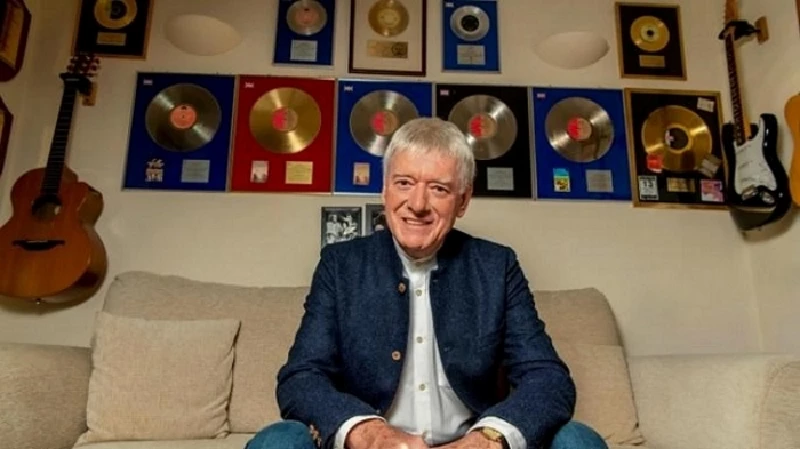
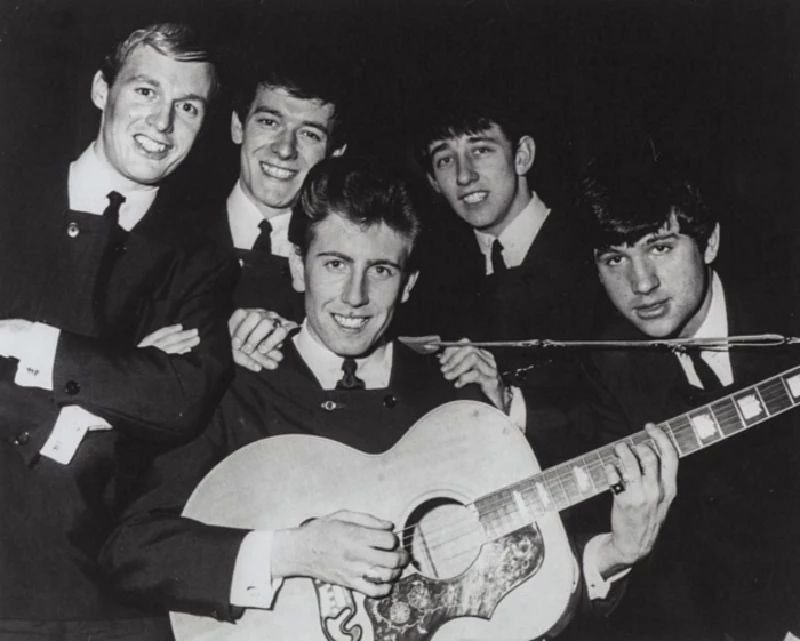
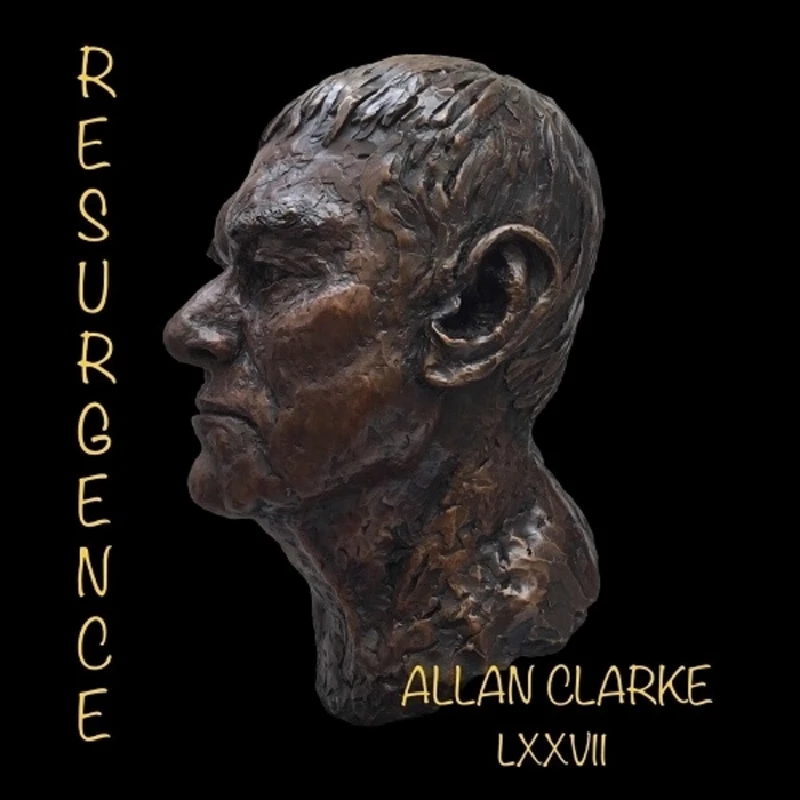
reviews |
|
I'll Never Forget (2023) |
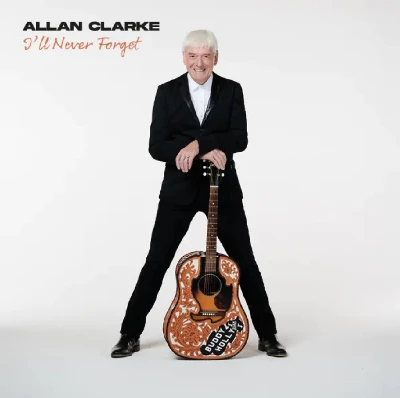
|
| Classy second solo album in four years from former Hollies singer Allan Clarke which finds him reuinited with old bandmate Graham Nash |
most viewed articles
current edition
Carl Ewens - David Bowie 1964 to 1982 On Track: Every Album, Every SongArmory Show - Interview with Richard Jobson
Colin Blunstone - Thalia Hall, Chicago, 16/7/2025
John McKay - Interview
Visor Fest - Valencia, Spain, 26/9/2025...27/9/2025
Bathers - Photoscapes 1
Billie Eilish - O2 Arena, London, 10/7/2025
Loft - Interview
Robert Forster - Interview
Sir Tim Rice - Interview
previous editions
Heavenly - P.U.N.K. Girl EPManic Street Preachers - (Gig of a Lifetime) Millennium Stadium, Cardiff, December 1999
Beautiful South - Ten Songs That Made Me Love...
Oasis - Oasis, Earl's Court, London, 1995
Coldplay - Wembley Arena. London, 16/8/2022
Peter Perrett - In Dreams Begin Responsibilities Interview Part One
Prolapse - Interview
Boomtown Rats - Ten Songs That Made Me Love....
Trudie Myerscough-Harris - Interview
Pixies - Ten Songs That Made Me Love...
most viewed reviews
current edition
Sick Man of Europe - The Sick Man of EuropeDavey Woodward - Mumbo in the Jumbo
Amy Macdonald - Is This What You've Been Waiting For?
Lucy Spraggan - Other Sides of the Moon
Phew, Erika Kobayashi,, Dieter Moebius - Radium Girls
Suzanne Vega - Flying With Angels
Bush - I Beat Loneliness
Blueboy - 2
Alice Cooper - The Revenge of Alice Cooper
Cynthia Erivo - I Forgive You
Pennyblackmusic Regular Contributors
Adrian Janes
Amanda J. Window
Andrew Twambley
Anthony Dhanendran
Benjamin Howarth
Cila Warncke
Daniel Cressey
Darren Aston
Dastardly
Dave Goodwin
Denzil Watson
Dominic B. Simpson
Eoghan Lyng
Fiona Hutchings
Harry Sherriff
Helen Tipping
Jamie Rowland
John Clarkson
Julie Cruickshank
Kimberly Bright
Lisa Torem
Maarten Schiethart